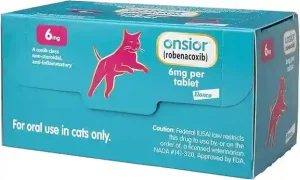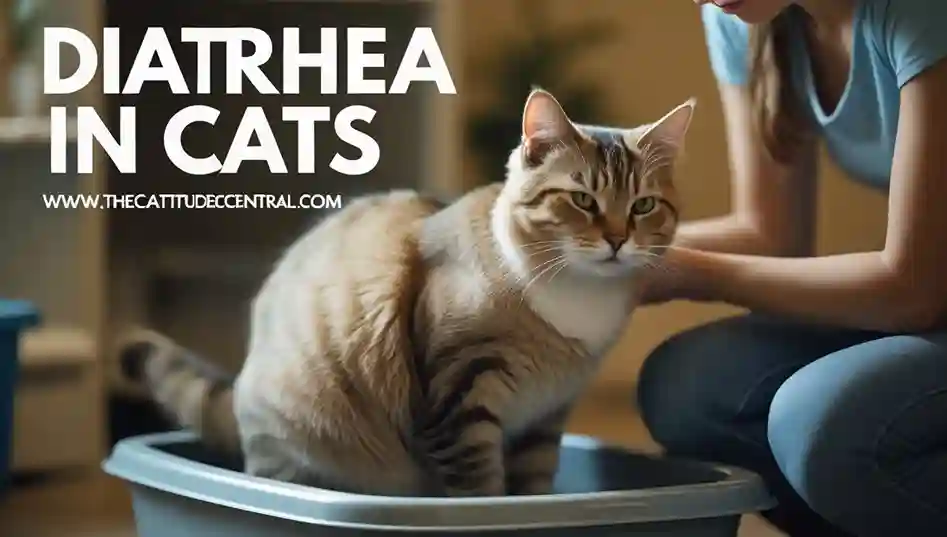As cat owners, we all want the best for our furry companions, especially when they’re dealing with pain or inflammation. Onsior For Cats has emerged as a go-to solution for many veterinarians and pet parents alike. This medication, known scientifically as robenacoxib, is specifically designed to address postoperative discomfort in felines.
In this comprehensive guide, we’ll dive deep into everything you need to know about Onsior For Cats, from its mechanisms to practical tips for administration.
Whether your cat has just undergone surgery or is struggling with chronic issues like osteoarthritis, understanding Onsior For Cats can make a world of difference. We’ll explore its benefits, how it works, and why it’s often preferred over other options. By the end of this article, you’ll be equipped with the knowledge to discuss Onsior For Cats confidently with your vet.
Understanding Onsior: What It Is and How It Works
Onsior For Cats is a non-steroidal anti-inflammatory drug (NSAID) that’s FDA-approved for use in cats. It’s primarily used to control pain and inflammation associated with surgical procedures, such as spaying, neutering, or orthopedic surgeries. The active ingredient, robenacoxib, targets the COX-2 enzyme, which is responsible for producing prostaglandins that cause inflammation and pain, while sparing the COX-1 enzyme that protects the stomach lining and kidneys.
This selective action makes Onsior For Cats safer than some older NSAIDs for short-term use. Unlike human pain relievers, which can be toxic to cats, Onsior For Cats is formulated specifically for feline physiology. It’s available in both tablet and injectable forms, allowing flexibility in administration depending on your cat’s needs.
One key advantage of Onsior For Cats is its rapid onset of action. Studies show it starts working within hours, providing relief that can last up to 24 hours per dose. This makes it ideal for post-surgical recovery, where quick pain management is crucial to prevent stress and promote healing.
The Primary Uses of Onsior For Cats

Onsior For Cats is most commonly prescribed for controlling postoperative pain and inflammation. For instance, after orthopedic surgery, spaying, or neutering, cats often experience significant discomfort. Onsior For Cats helps mitigate this, allowing your pet to rest and recover more comfortably.
Beyond surgery, some veterinarians use Onsior For Cats off-label for chronic conditions like osteoarthritis or degenerative joint disease (DJD). While not officially approved for long-term use in the US, research indicates it can be effective for managing ongoing pain in cats when monitored closely. In Europe, it’s approved for up to six days for acute musculoskeletal disorders.
If your cat is showing signs of pain—such as limping, reduced activity, or aggression—Onsior For Cats might be recommended. It’s particularly useful for acute flare-ups, providing targeted relief without the risks associated with steroids or opioids in cats.
Dosage Guidelines: Getting It Right for Your Cat
Administering the correct dosage of Onsior For Cats is vital for safety and efficacy. The standard dose for tablets is 1 mg per kg of body weight, given once daily for up to three days. For cats weighing between 5.5 and 13.2 pounds, one 6 mg tablet is typically sufficient. Larger cats over 13.3 pounds may require two tablets.
The injectable form of Onsior For Cats is given at 2 mg per kg subcutaneously, often in a veterinary setting before or after surgery. Tablets and injections can be used interchangeably for a maximum of three days in cats aged four months and older, weighing at least 5.5 pounds.
Always follow your vet’s instructions precisely. Do not split tablets, as this can lead to inaccurate dosing. Onsior For Cats should be given with food to minimize gastrointestinal upset, and never exceed the recommended duration without veterinary supervision.
If you accidentally give a double dose, contact your vet immediately. While Onsior For Cats is relatively safe, overdoses can exacerbate side effects.
Potential Side Effects: What to Watch For
Like any medication, Onsior For Cats can have side effects, though they’re generally mild and rare when used as directed. Common issues include vomiting, diarrhea, decreased appetite, and soft stools. These often resolve once the treatment ends.
More serious side effects, though uncommon, may involve kidney or liver issues, especially in dehydrated cats or those with pre-existing conditions. Signs to monitor include lethargy, yellowing of the gums (jaundice), increased thirst or urination, or seizures. If you notice any of these, stop Onsior For Cats and seek veterinary care right away.
In safety studies, even at higher doses, Onsior For Cats showed no significant adverse effects in healthy young cats. However, it’s not suitable for cats with gastrointestinal ulcers or those on other NSAIDs or corticosteroids.
Precautions and Contraindications for Safe Use
Before starting Onsior For Cats, inform your vet about your cat’s full medical history. It’s contraindicated in cats with known hypersensitivity to robenacoxib, gastrointestinal ulceration, or bleeding disorders.
Onsior For Cats should be used cautiously in cats with heart, kidney, or liver disease, as NSAIDs can affect these organs. Dehydrated or geriatric cats may require additional monitoring, including blood tests before and during treatment.
Pregnant or lactating cats should avoid Onsior For Cats, as its safety hasn’t been established in these groups. Also, never combine it with other pain relievers like aspirin or acetaminophen, which are toxic to cats.
For long-term pain management, discuss alternatives with your vet, as Onsior For Cats is approved only for short-term use in the US.
Read More: Fungal Infections In Cats Guide
Alternatives to Onsior For Cats: Natural and Over-the-Counter Options
While Onsior For Cats is effective, some pet owners prefer natural alternatives or supplements for ongoing joint support. These can complement veterinary treatments but shouldn’t replace prescribed medications without advice.
For joint pain relief, consider glucosamine and chondroitin supplements. The LiquidHealth Pets Liquid Cat Glucosamine Joint Purr-Fection is a popular choice on Amazon, offering hip and joint support for cats of all ages. Priced around $13.49, it’s easy to administer with a dropper and helps with arthritis relief.
Another option is Pet Honesty Cat Hip & Joint Health Crunchy & Creamy Chews, which include glucosamine for mobility. Available for about $24.99 on Amazon, these chews are tasty and support indoor and outdoor cats.
Hemp oil products like Billion Pets Hemp Oil for Dogs and Cats provide calming and pain relief benefits. It’s around $24.99 on Amazon and helps with anxiety, stress, and arthritis without psychoactive effects.
For natural anti-inflammatory support, T-Relief Pet Pain Relief tablets use arnica and other herbs. Priced at approximately $12.50 per bottle on Amazon, they’re suitable for easing muscle and joint soreness in cats.
Always consult your vet before introducing any supplement alongside Onsior For Cats to avoid interactions.
FAQs About Onsior For Cats
Based on common searches and trends, here are answers to frequently asked questions about Onsior For Cats.
How long does Onsior For Cats pain relief last?
Onsior For Cats provides relief for up to 24 hours per dose, making it suitable for once-daily administration.
Does Onsior For Cats make my cat drowsy?
Typically, no. Onsior For Cats does not cause drowsiness; common side effects are gastrointestinal rather than sedative.
Is Onsior For Cats safe for long-term use?
It’s FDA-approved for up to three days. Off-label use for longer periods, like in osteoarthritis, requires veterinary monitoring due to potential kidney risks.
What if I miss a dose of Onsior For Cats?
Give it as soon as you remember, but skip if it’s near the next dose. Never double up.
Can Onsior For Cats be given with food?
Yes, administering with food can reduce stomach upset.
Are there natural alternatives to Onsior For Cats?
Yes, supplements like glucosamine or hemp oil can help with joint pain, but they’re not substitutes for veterinary-prescribed NSAIDs.
How much does Onsior For Cats cost?
Costs vary, but expect $10-20 per dose or package; check with your vet for exact pricing.
Can kittens take Onsior For Cats?
It’s approved for cats four months and older, weighing at least 5.5 pounds.
Final Thoughts
Onsior For Cats stands out as a reliable, targeted solution for feline pain management, particularly in postoperative scenarios. By understanding its uses, dosages, and precautions, you can help your cat live a more comfortable life. Remember, always consult your veterinarian before starting any treatment, including Onsior For Cats.
If chronic pain is an issue, explore holistic approaches or supplements from trusted sources like Amazon to support your cat’s well-being. With proper care, Onsior For Cats can be a valuable tool in your pet care arsenal.
Sources



